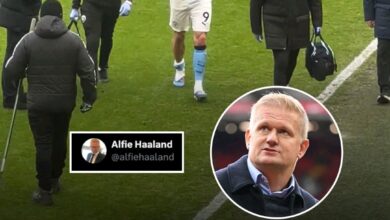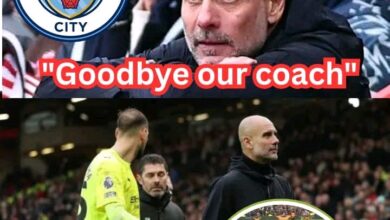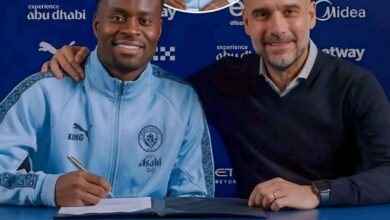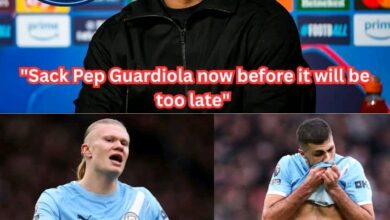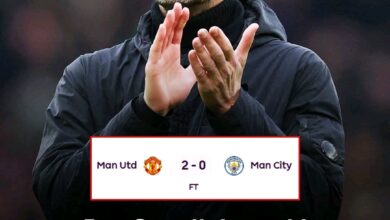Arsenal’s Rising Star Max Dowman: The Dressing Room Dilemma That Highlights Modern Football’s Youth Protection
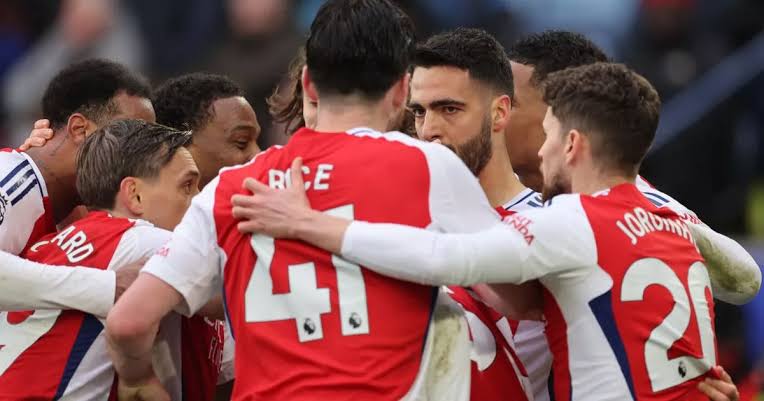
In the ever-evolving landscape of modern football, where teenage prodigies are increasingly breaking into senior squads at younger ages, Arsenal finds itself navigating a peculiar yet important challenge that perfectly encapsulates the delicate balance between nurturing young talent and maintaining appropriate safeguarding measures. The case of 15-year-old Max Dowman, Arsenal’s latest wonderkid, has brought to light a fascinating intersection of sporting ambition, legal requirements, and child protection protocols that extends far beyond the confines of the Emirates Stadium.
Max Dowman represents the latest in Arsenal’s proud tradition of developing exceptional young talent. At just 15 years old, the attacking midfielder has already captured the attention of manager Mikel Arteta and the Arsenal coaching staff with performances that belie his tender age. His statistics from the previous season paint a picture of a player operating at a level that suggests he possesses the rare combination of technical ability, tactical understanding, and mental fortitude required to potentially make the leap to senior football.
Scoring 19 goals and registering 5 assists in 23 games across all competitions for Arsenal’s youth teams last season, Dowman’s numbers are impressive by any standard, but particularly remarkable for someone who was still 14 for much of that campaign. These statistics don’t merely represent isolated moments of brilliance; they demonstrate a consistent level of performance that has earned him recognition from the club’s hierarchy and integration into senior training sessions.
The decision to include Dowman in Arsenal’s 30-man traveling party for their pre-season tour of Asia speaks volumes about the club’s assessment of his potential. Pre-season tours are valuable opportunities for clubs to assess their squads, generate revenue, and build their global brand presence. The fact that Arsenal chose to allocate one of their limited squad places to a 15-year-old demonstrates their belief in his immediate potential and long-term prospects
Arsenal’s pre-season tour to Singapore and Hong Kong represents more than just preparation for the upcoming 2025/26 season; it’s a chance for the club to strengthen its connection with its passionate Asian fanbase while providing valuable experience to both established stars and emerging talents. The tour includes high-profile fixtures, including a match against AC Milan, providing Dowman with potential exposure to elite-level competition in a controlled environment.
Mikel Arteta’s decision to assign Dowman the number 56 for the tour is significant in its symbolism. While not a traditional first-team number, it represents official recognition of his place in the traveling squad and suggests that the manager genuinely views him as a potential contributor rather than merely a development player gaining experience.
Arteta’s description of Dowman as a “huge talent” carries particular weight given the Arsenal manager’s track record with young players. Under Arteta’s guidance, Arsenal has successfully integrated several academy graduates into the first team, including Bukayo Saka, Emile Smith Rowe, and more recently, Ethan Nwaneri. This pattern of youth development suggests that Arteta’s praise for Dowman is based on concrete assessment rather than mere encouragement.
However, Dowman’s rapid ascent through Arsenal’s ranks has brought him face-to-face with a unique challenge that highlights the complex intersection of sporting merit and legal requirements in modern football. The Football Association’s guidelines regarding players under 18 create a situation that Arteta has previously described as “unbelievable,” though not necessarily in a positive sense.
The FA’s recommendation that players under 18 should not change alongside adult players stems from comprehensive child protection protocols designed to safeguard young people in professional sports environments. These guidelines recognize that despite their professional status, players under 18 remain legally defined as children and therefore require additional protections that may not be immediately obvious to those focused purely on sporting considerations.
This policy creates practical challenges that extend beyond simple logistics. The dressing room in professional football serves multiple functions beyond merely changing clothes. It’s a space where tactical discussions occur, team bonding takes place, and the psychological preparation for matches happens. For a young player like Dowman, being excluded from this environment could potentially impact his integration into the senior squad and his ability to fully experience the professional football culture.
Arsenal’s experience with Ethan Nwaneri provides valuable insight into how the club navigates these challenges. Nwaneri, who made headlines by becoming the youngest player ever to appear in a Premier League match when he debuted at 15 years and 181 days old, faced the same dressing room restrictions that now confront Dowman.
Arteta’s description of the rule as “unbelievable” when applied to Nwaneri reveals the manager’s perspective on what he likely views as bureaucratic obstacles to sporting development. However, his compliance with the guidelines demonstrates Arsenal’s commitment to following proper protocols, regardless of personal opinions about their necessity or practicality.
The Nwaneri precedent suggests that Arsenal has developed systems and procedures to accommodate young players while adhering to FA guidelines. This experience likely makes Dowman’s situation more manageable, as the club has already established alternative arrangements that allow young players to participate in senior activities while maintaining compliance with child protection requirements
Dowman’s situation reflects broader trends in contemporary football, where the identification and development of young talent has become increasingly sophisticated and accelerated. Clubs invest millions in academy systems designed to produce the next generation of stars, and the pressure to integrate promising youngsters into senior squads continues to intensify.
The financial implications of successful youth development cannot be overstated. Homegrown players provide significant value to clubs both in terms of their potential contributions on the pitch and their compliance with various regulatory requirements regarding squad composition. Additionally, the potential transfer fees for successfully developed academy products can represent enormous returns on investment for clubs willing to commit resources to youth development.
However, this drive for early integration must be balanced against the need to protect young people’s physical, emotional, and psychological wellbeing. The FA’s guidelines, while potentially frustrating for clubs and managers, serve as important safeguards in an environment where commercial pressures and competitive advantages might otherwise override considerations of child welfare
The challenge facing young players like Dowman extends beyond regulatory compliance to encompass the fundamental question of whether teenagers can handle the physical and mental demands of professional football. The intensity of training, the pressure of performance, and the scrutiny that comes with professional sport can be overwhelming even for mature adults, let alone teenagers still developing their emotional and psychological resilience.
Research in sports psychology suggests that early specialization and intense training can have both positive and negative effects on young athletes. While early exposure to high-level competition can accelerate development and provide valuable experience, it can also lead to burnout, increased injury risk, and psychological pressure that may impair long-term development.
Arsenal’s approach to managing Dowman’s development will likely involve careful monitoring of his physical condition, psychological state, and overall wellbeing. The club’s medical and psychological support staff play crucial roles in ensuring that young players can handle the transition from youth to senior football without compromising their health or development.
From a purely footballing perspective, Dowman’s integration into Arsenal’s senior squad represents an intriguing tactical consideration for Arteta. As an attacking midfielder, Dowman would likely compete for opportunities in positions currently occupied by established players like Martin Ødegaard, Kai Havertz, and Fabio Vieira.
Arsenal’s tactical system under Arteta emphasizes technical proficiency, tactical intelligence, and physical intensity – qualities that young players must demonstrate to earn opportunities in the senior squad. The fact that Dowman has been training with the senior team suggests that he has already shown the ability to cope with these demands at training level.
The attacking midfielder position requires particular maturity and understanding of the game, as players in this role must make quick decisions under pressure while balancing creative responsibilities with defensive duties. Dowman’s goal and assist statistics suggest that he possesses the offensive instincts necessary for this role, but his ability to handle the complete range of responsibilities will likely determine his readiness for senior football
Dowman’s rapid development also has potential implications for his international career. Young players who establish themselves at senior club level often attract attention from national team selectors, and England’s youth teams are known for their competitiveness and high standards.
The pathway from youth international football to senior international recognition has become increasingly important for young players’ development and career prospects. Success at youth international level can provide valuable experience and exposure that accelerates club-level development, while also establishing players within the broader football community.
However, the demands of international football add another layer of complexity to young players’ development, requiring careful management to prevent overexposure and burnout. Arsenal’s coaching staff will need to balance Dowman’s club commitments with any international obligations to ensure optimal development.
The attention surrounding young players like Dowman also highlights the commercial and media dimensions of modern football. Young prodigies generate significant interest from fans, media, and sponsors, creating both opportunities and pressures that previous generations of players rarely experienced.
Social media and digital platforms amplify this attention, meaning that young players must navigate not only the sporting challenges of professional football but also the scrutiny and commentary that comes with public recognition. This additional pressure can be particularly challenging for teenagers who are still developing their sense of identity and self-confidence.
Arsenal’s media and communications teams play important roles in managing this attention, ensuring that young players receive appropriate exposure while protecting them from excessive pressure or negative commentary that could impact their development.
Max Dowman’s situation perfectly encapsulates the challenges and opportunities facing modern football as it seeks to balance the desire to develop and showcase young talent with the fundamental responsibility to protect and nurture young people. The dressing room restrictions that may apply to Dowman represent more than mere bureaucratic inconvenience; they symbolize the ongoing effort to maintain appropriate boundaries and safeguards in an environment where sporting success and commercial considerations often take precedence over other concerns.
As Dowman continues his development and potentially makes his senior debut for Arsenal, his experience will likely inform future discussions about youth development protocols and the integration of young players into professional football environments. The outcome of his journey – both the successes and challenges he encounters – will provide valuable insights for other clubs facing similar situations with their own young prospects.
Ultimately, the goal must be to create systems that allow talented young players like Dowman to fulfill their potential while ensuring their wellbeing and long-term development remain the paramount considerations. If Arsenal can successfully navigate these challenges with Dowman, as they appear to have done with Nwaneri, it will demonstrate that it’s possible to maintain high standards of child protection while still providing opportunities for exceptional young talent to flourish at the highest level of the game.










